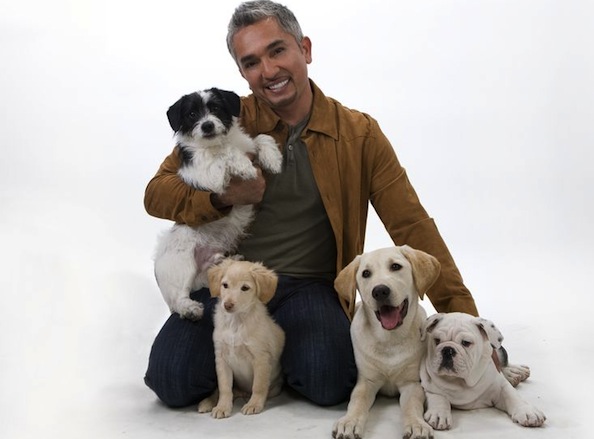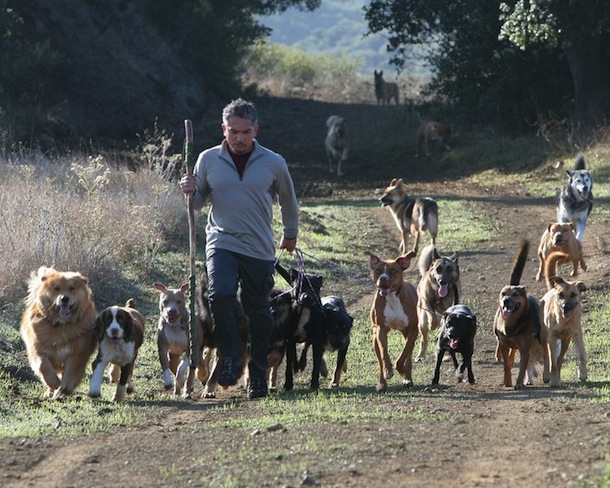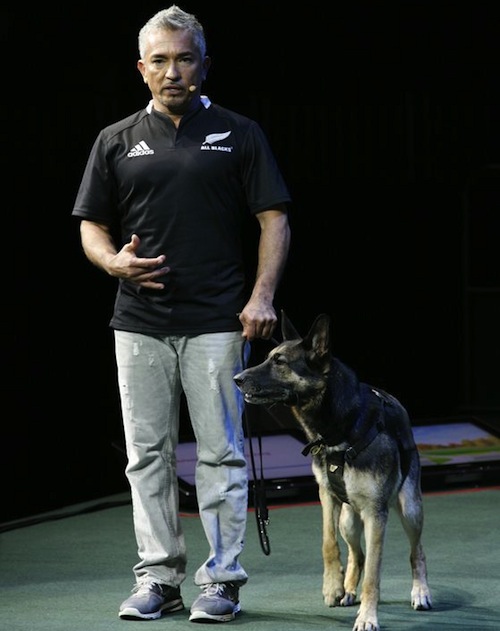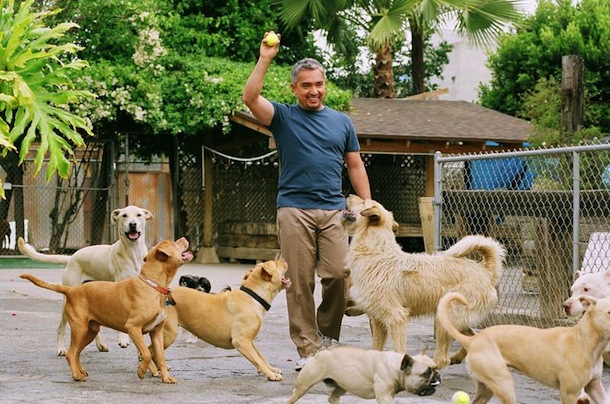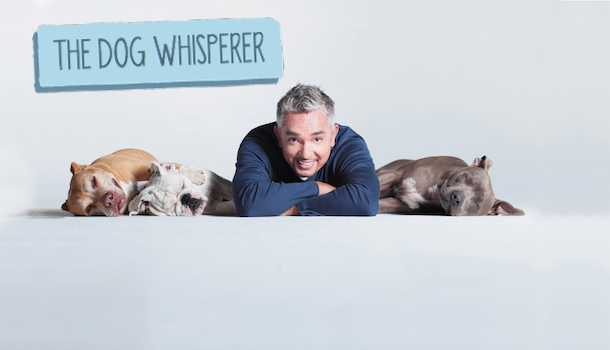
The Dog Whisperer Cesar Millan is coming to Singapore on 2 May 2014, and he’s looking for dogs for his television series and live show!
From Pomeranians to poodles, beagles to bulldogs and every other type of pup you can imagine, the hunt is on for the best show dog in town. Problematic pooches, disastrous doggies and howling hounds are being called forward to the casting couch to jostle for a spot on his coveted show. We have insider info on how to fast track your application and have listed all the entry details below mama!
If you haven’t heard of Monsieur Millan… where have you been?! The Mexican-American dog trainer is a self-taught expert with a television series that’s aired in over 80 countries worldwide. His three books are all New York Times bestsellers that focus on real life dog rehabilitation scenarios. He uses calm-assertive energy to help dog owners establish their role as pack leaders and focuses on the basic necessities for a jolly old dog loving kind of life! It boils down to exercise, exercise and a little bit more exercise… sounds simple doesn’t it?
Cesar is on the hunt for out of control dogs. He’s especially interested in canines that are causing problems in their neighbourhoods or communities. If you want your dog to be considered, just film a five to seven minute video that showcases your pooch’s problems. Make sure you highlight your dog’s bad behaviour, exact difficulties, and your attempts to correct the problem. Email your video entry to our insider Todd at [email protected] by 20 April. And if you don’t have a doggie but want to see his show, you can book tickets here!
And there’s more! We received a special phone call from the man himself yesterday morning, straight from the heart of Beverly Hills 90210. Cesar spent 15 minutes answering all our doggie woes, giving us a taster of much more to come! So keep on reading, because we’ve got the scoop straight from the horses… or should we say dog’s mouth! Read below for some exclusive advice.
How can I make my new rescue dog feel safe and comfortable as fast as possible?
The biggest mistake people make is that they feel sorry for rescue dogs. You should forget about the past and focus on the future during rehabilitation. When I come across a case of a scared dog, I focus on how I can help them, not on what made them scared in the first place. Most of the time, cooped up rescue dogs simply need long walks. Once you start exercising dogs and giving them a normal life, rehabilitation happens fast. Only give affection when a dog’s relaxed, because if you give affection to a dog when it’s nervous you nurture anxiousness.
Top tips for a calm and happy dog?
Exercise is crucial, it makes humans happy and the same theory applies to dogs. If you start to notice problems with your pooch, it’s because they’re not getting enough exercise or they’re not stimulated enough. A well-exercised dog is a happy, balanced dog free of tension, frustration and anger. Dogs don’t care about material things, fame or power, they only care about balance and harmony. Exercise returns species to their natural state, so it’s pretty simple if you think of it like that. Everyone assumes that humans need to teach animals, but sometimes it can work the opposite way around. By keeping it simple and going back to basics you give your dog a chance to reset.
How do you stop a dog play biting and jumping on visitors?
A puppy’s strongest ability is their sense of smell, plus they want to learn about everything in the first eight months. Naturally, this means they will want to sniff and smell everything that enters their environment. If a dog is jumping on you/visitors/strangers it can often mean that they are anxious, which is why they calm down when you pick them up. Exercise plays a large part in making sure a dog is not anxious. Tire your dog out before visitors arrive and make sure the person who arrives ignores the dog for a little while. You want to introduce scent, sight and energy into the environment before the visitor tries to play with the dog. If you want to nip this behaviour in the bud, I always advise using the no touch, no talk and no eye contact rule whenever you first greet your puppy. This calms your dog down and makes them rely on their nose. Wait until they’re calm and sitting in their bed before paying them attention.
What breed is best for small living spaces?
A lot of people think that size matters when getting a pup, but energy plays a much bigger role in finding the right dog for your family. There are low, medium and high-energy dogs. Size doesn’t equate to energy, and having a large space doesn’t mean you’ll have a well-behaved dog. I’ve coached high energy Jack Russells and I know a lot of people with lots of space with misbehaved little dogs and vice versa. Take into account how much time you have to exercise your dog; the higher your prospective dog’s energy, the more time you will need. If you do have a hyper dog try the no touch, no talk, no eye contact method and see if it works. Going for a long walk and strapping a special bag to their back keeps them focused as they walk. Remember that dogs are sensory animals, and a relaxed soothing smell like lavender can have a calming effect too.
Why is my dog humping my children?
Before you stop a dog from doing something, you need to understand why they are doing it. If a dog humps a child or elderly person they’re doing so because that human is weak. Dogs are more prone to humping people who have weak energy. Kids don’t have wisdom and older people may not have the necessary strength to push the dog away. Teenagers and assertive adults are more difficult to hump. For example, it’s easier for a dog to hump Albert Einstein than Arnold Schwarzenegger. It’s not because they prefer smart men, it’s because he’s the weaker human of the two.
Why is my dog eating its own poo?
Eating poo is a common trait in dogs that are not getting proper nutrients. They eat their poo because there is food in them. If it’s not related to nutrient intake then it can be a result of under stimulation or boredom. If your dog is in a routine, try taking them outside where you can prevent them from eating it. Exercise and training stimulate dogs and can help out with this problem too.






 View All
View All





 View All
View All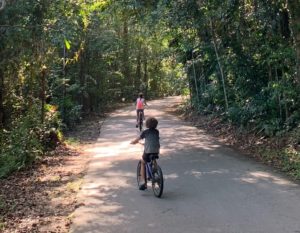
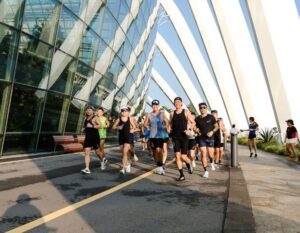









 View All
View All


